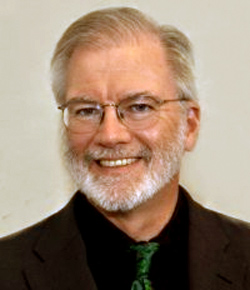
Rich Whitney The Chicago Tribune endorsed Republican Bill Brady over Democrat Pat Quinn on Sunday, but if an editorial ever screamed “We’re holding our noses while we write,” this was it. Neither of these guys is any good, the message seemed to be. Quinn, a pushover for House Speaker Madigan and Senate President Cullerton, “squandered” the two years he had “to reverse the Illinois death spiral.” Brady may well be in over his head, but at least we don’t know that yet, because he has never been governor.
It was that kind of analysis that prompted me to call Green Party candidate Rich Whitney.
Whitney, 55, the father of three grown children and a former member of the Socialist Labor Party, grew up in New Jersey but now lives in Carbondale, where he makes his living as a lawyer.
To fix the state’s $13-billion deficit, he says without hedging, he’d raise the Illinois income tax by two points to five percent. In a detailed plan, clearly featured on his website, he also calls for “a financial transactions tax on speculative trading” at the Chicago Mercantile Exchange and the Chicago Board Options Exchange. He wants single-payer health care in Illinois and the legalization of marijuana. (He’d set the legal age at 18 and tax the sales.)
Asked to imagine being forced to choose between Quinn and Brady, Whitney labels Quinn “the lesser of two evils,” but would “abstain” from the vote. Still, he seems to have a very small soft spot for Quinn, whom he calls “personally a nice guy, but he can’t do certain things that I think he might like to do. He’s part of the big corporate money machine that both Democrats and Republicans rely on.”
Whitney says he depends on $10 and $20 contributions and gets nothing from the national Green Party, “which has problems of its own.” He has one paid staffer and travels by AMTRAK, CTA, and Metra. When in Chicago, he stays with a friend in the Little Village neighborhood. The friend boards foreign students and Whitney usually snags one of the rooms, gratis.
“The conventional wisdom,” Whitney says, is that his candidacy hurts Quinn. He disagrees, pointing to his 2006 campaign for governor when he ended up with 10.36 percent of the vote: “Our votes were pretty evenly distributed among people who normally vote Republican and Democratic and real independents.” This year, he adds, he “intentionally sought to go after traditional conservative voters who may not be comfortable with some of the extreme positions of Sen. Brady.”
The son of “Eisenhower Republicans,” he joined the Socialist Labor Party while a student at Michigan State. The Party’s message back then was that “the source of the problem is in the capitalist system itself, and we need to move toward a worker-controlled society.” Today, Whitney says, “I still believe in the idea that we need a society that helps empower working people,” but he adds that “genuine free enterprise also plays a valuable role.” He left the Socialist Labor Party in 1993.
He points to Denmark as his “model government” because it offers “genuine universal health care, an $18-an-hour minimum wage, and they pay people to go to college.” (Whitney advocates free college tuition for Illinoisans, but only after he hoists the state out of its budget hole.)
Whitney was excluded from the Union League-sponsored debate last month because polling showed him under the 10 percent the Club required for participation. In a Tribune/WGN poll from early this month, Whitney polled at just 3 percent. He is demanding to be included in two debates later this month, one sponsored by the League of Women Voters and the other by the City Club of Chicago, but his chances are diminished by the latest poll from the Paul Simon Public Policy Institute, which has Whitney at just 2.2 percent.
That dip may be related to the efforts of independent candidate Scott Lee Cohen, who is hosting job fairs in the area and advertising aggressively on the radio. Cohen drew 5.9 percent in the Paul Simon Public Policy Institute poll, and the Libertarian Party’s Lex Green drew 1.5 percent. However, Whitney’s Green Party is—at least for now—the state’s only legally established third party.
Photograph: Courtesy of Rich Whitney for Governor


